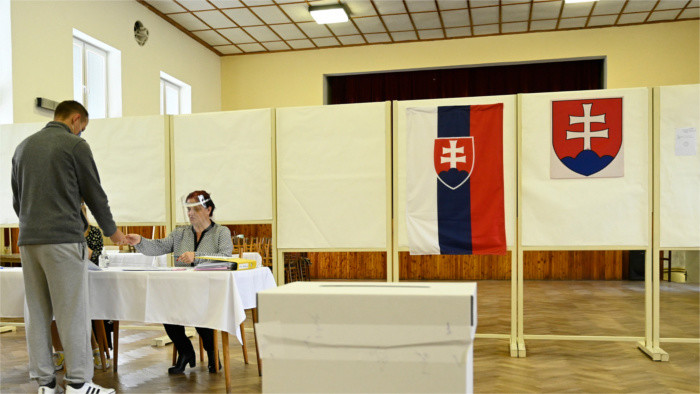On Saturday 30 September, we will elect 150 members of the National Council of the Slovak Republic for the next four-year term. That's why RSI has launched a series focusing on general information about the upcoming general elections. The elections will be supervised by the State Commission for Elections and Control of Political Party Financing. Is it an independent body and what are its powers? Our colleague Branislav Grman asked the chairman of the commission, Ladislav Orosz.
2nd round role of the Electoral Commission Máte problém s prehrávaním? Nahláste nám chybu v prehrávači.
“Its main tasks include ensuring the legality of the elections and their organisation. It also controls the financing of political parties. This is done on the basis of annual reports. All political parties must submit this document to the State Commission by the end of April of the relevant year. The members of the Commission examine them and then make a decision.”
The Commission consists of 14 members and is formed after each parliamentary election for the period until the next parliamentary election. The President of the State Commission is elected by the National Council of the Slovak Republic. Who can be a member of this body?
“Of the total number of commissioners, 10 are politicians. Five members are delegated by the coalition political parties and five members by the opposition parties. The presidents of the Constitutional Court of the Slovak Republic, the Supreme Administrative Court, the Supreme Audit Office of the Slovak Republic and the Prosecutor General nominate one candidate each.”
It is currently chaired by Ladislav Orosz, who was appointed by the President of the Constitutional Court. Who can get help from the State Commission?
“We cannot prevent citizens or legal entities from contacting us. However, political parties are of key importance to us. We decide on their rights and obligations. We also give them methodological guidance, both on how to finance election campaigns and on managing the party in general.”
As Ladislav Orosz noted, one of the most common suggestions is how to understand the rules of the electoral law.
“Of course, the State Commission responds to every qualified proposal from a political party. We adopt conclusions in the form of resolutions, which are published on the website of the State Commission.”
There are several steps to controlling the financing of political parties. Ladislav Orosz continues.
“First, we check the annual report to see if it contains all the necessary information. If we find deficiencies, we ask the political parties to correct them. If a political entity fails to do so, the Commission states this in its decision and may impose a financial penalty. If a political party accepts a donation in breach of the law, we have to sanction it. The penalty is double the amount of the donation in question.”
There is also a problem for a political party if it fails to submit an annual financial report for two years in a row.
“The Commission always informs the Ministry of the Interior, which then removes the party from the register of political parties. During my presidency of the Commission, 12 political entities have been removed in this way.”
Another modern phenomenon is the sharing of photos of completed ballot papers. Ladislav Orosz points out that voting should be private.
“The principle of ballot secrecy is one of the oldest principles of elections. From this point of view, citizens should not reveal how they voted. However, this is only sanctioned if it is found that a voter has been rewarded for taking a photograph of the paper. This is a case of electoral corruption and must be judged by other authorities.”
The functioning of the State Election Commission is guaranteed by the Ministry of the Interior of the Slovak Republic. Chairman Ladislav Orosz adds that so far 20 complaints have been registered for the upcoming parliamentary elections.
“I expect that there will be more, and perhaps more serious ones, in September. We are also expecting new comments to be made on polling day. For example, during the last municipal elections we received almost 200 complaints.”
Concludes chairman of the State Commission for Elections and Control of Political Party Financing - Ladislav Orosz.

